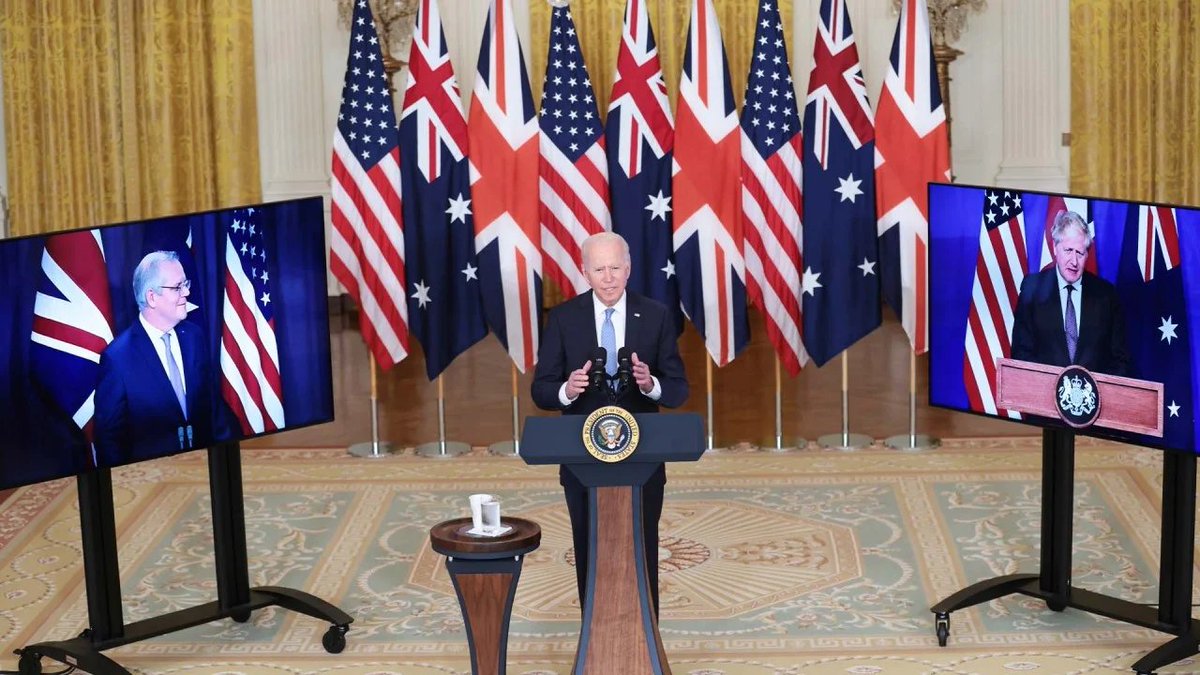
The ruckus over #AUKUS makes one thing clear: "Balancing" is back!
That will make Realists excited. Why?
Time to #KeepRealismReal
[THREAD]
That will make Realists excited. Why?
Time to #KeepRealismReal
[THREAD]

While there is no ONE theory of Realism, the idea of "balancing" is central to nearly all realist thought.
This is because the "balance of power" is a core concept in realist theory.
This is because the "balance of power" is a core concept in realist theory.
https://twitter.com/ProfPaulPoast/status/1401139425929748484
I won't go fully into the Balance of Power and whether it is a "law" of politics. Let's just say that the concept potentially has a host of issues (as @dhnexon describes in this outstanding review of the concept)
cambridge.org/core/journals/…
cambridge.org/core/journals/…
Rather than looking for the "object" of balances of power existing, lets focus on the "action" of balancing.
That means going back to Waltz!
amazon.com/Theory-Interna…
That means going back to Waltz!
amazon.com/Theory-Interna…
According to Waltz, balancing can take two forms: external and internal.
Here is the passage where he uses the two phrases
Here is the passage where he uses the two phrases

Let's unpack that passage!
According to Waltz, states can acquire arms in two ways:
-- "internally": build your own arms.
-- "externally": arms of others, i.e. an ally.
According to Waltz, states can acquire arms in two ways:
-- "internally": build your own arms.
-- "externally": arms of others, i.e. an ally.
Because both are "balancing", there is a perceived relationship between the two...one is sometimes seen as a substitute for the other.
cambridge.org/core/journals/…
cambridge.org/core/journals/…
What's the advantage of arming?
As Waltz points out, the arms are yours to use. In other words, reliability...well, assuming your arms actually work🤦♂️
As Waltz points out, the arms are yours to use. In other words, reliability...well, assuming your arms actually work🤦♂️
But what is the disadvantage to arming?
When you acquire more "guns", you can't have as much "butter"
When you acquire more "guns", you can't have as much "butter"

What's the advantage of having allies?
For realists, it's "Capability Aggregation". 💪
This means combining your military might...or, as Waltz says, using the capabilities of allies rather than (just) your own.
For realists, it's "Capability Aggregation". 💪
This means combining your military might...or, as Waltz says, using the capabilities of allies rather than (just) your own.
But what is the disadvantage of having allies?
Well, it's the inverse of the advantage of arms: unreliability. You "hope" your ally is there when you need them 🤞🤞
Well, it's the inverse of the advantage of arms: unreliability. You "hope" your ally is there when you need them 🤞🤞
This is why "credibility of commitment" or "reputation for reliability" are such key concepts in the literature on alliances.
https://twitter.com/ProfPaulPoast/status/1431580446828138496
All of the above describes what "balancing" is.
But why do states NEED to balance in the first place, either internally or externally? 🤔
But why do states NEED to balance in the first place, either internally or externally? 🤔
But a few years after Waltz, @stephenWalt added an important nuance to the balancing motivation
amazon.com/Origins-Allian…
amazon.com/Origins-Allian…
For Walt, it's not about opposing power itself. Instead, it is whether that power is possessed by a "threat". 

The inclusion of "perceived intentions" is interesting to me. What determines how decision makers in one state perceive the intentions of another state?
Hmmm....maybe Wendt (who we'll get to in another thread) was on to something
cambridge.org/core/journals/…
Hmmm....maybe Wendt (who we'll get to in another thread) was on to something
cambridge.org/core/journals/…
Regardless of the exact motivation for balancing, all of the above discussion reinforces something we've known for a long time and that George Liska stated so well in his classic, "Nations in Alliance"
amazon.com/Nations-Allian…
amazon.com/Nations-Allian…
Liska wrote, "alliances are against, and only derivatively for, someone or something".
That matters for thinking about #AUKUS.
That matters for thinking about #AUKUS.
As has been well covered, 🇫🇷 officials are upset that 🇦🇺 left a deal with them in order to sign this pact with 🇺🇸 and 🇬🇧.
https://twitter.com/nytimes/status/1438955471101104139
But #AUKUS is not about "who" it is "for".
It's about "who" it is "against". That answer? Clearly 🇨🇳.
bbc.com/news/world-585…
It's about "who" it is "against". That answer? Clearly 🇨🇳.
bbc.com/news/world-585…
Of course, this means that #AUKUS might lead to "counter-balancing", i.e. 🇨🇳 responds with its own balancing measures. Then 🇦🇺🇬🇧🇺🇸 will respond, and so on
https://twitter.com/ProfPaulPoast/status/1438935075463249920
Intellectually, this could force us to reconsider arguments that "balancing" and "balance of power theory" are really not applicable to the region (@daveckang in @Journal_IS is essential reading on this debate).
jstor.org/stable/4137604…
jstor.org/stable/4137604…

In sum, #AUKUS is textbook "balancing" behavior, such behavior isn't going away, and Realists are going to have a lot to say about it.
[END]
[END]
P.S. Already seeing evidence for my last point 👇
https://twitter.com/stephenWalt/status/1439221179332669443
• • •
Missing some Tweet in this thread? You can try to
force a refresh









